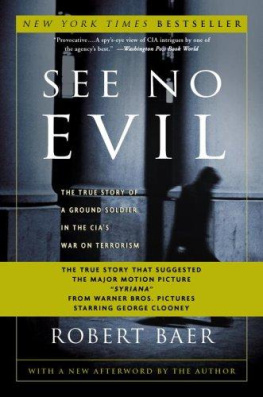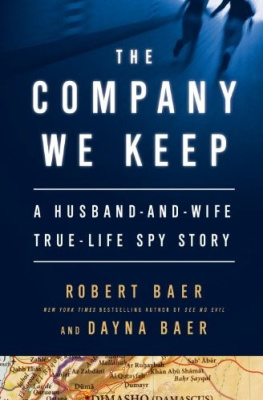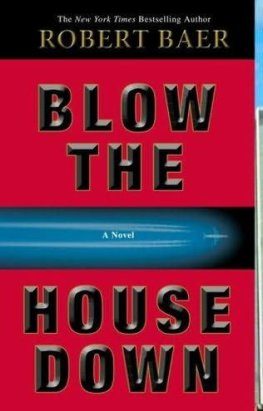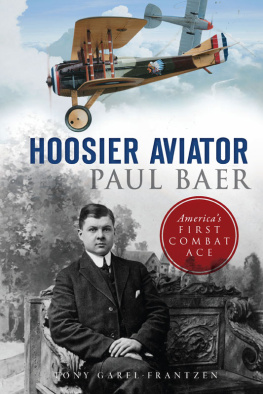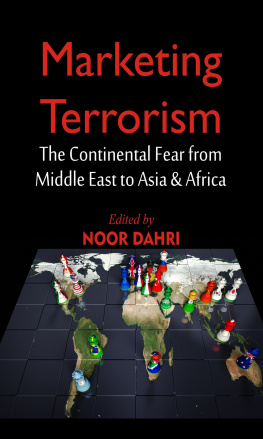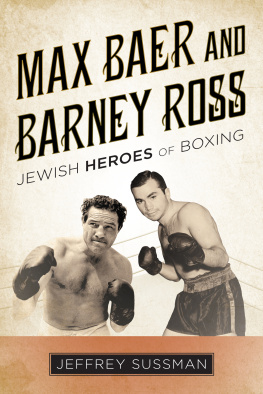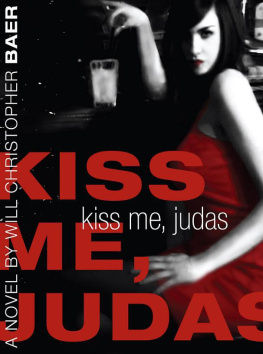Copyright Information
This eBook file was generated by MobiPocket Publisher Personal Edition.
This eBook file is for personal use only and cannot be sold.
To generate eBooks to be sold or for corporate or public usage, please purchase the commercial version at : http://www.mobipocket.com
See No Evil
Robert Baer

FOREWORD
Bob Baer is not alone. Yes, his riveting account of life in the post-cold war CIA is devastating - yet another body blow to the reputation of an intelligence agency that failed to protect America when it needed to be protected. But Baers account of cowardly bureaucrats and indifferent officials in the White House will ring true to a very special audience - the dozens of distinguished and successful CIA operatives who have taken early retirement in recent years, in lieu of continuing to pretend that they were making a difference. Ive talked to many of these men and women in recent months, and they, like Baer, are writhing with pain, anger, and frustration. Like Baer, they werent allowed to do their job the right way, the way it had to be done to be effective.
Weve hit intelligence rock bottom in America. As this is being written, nearly three months after the September 11 terrorism attacks, the intelligence community still cannot tell us who was responsible, how the assassins worked, where they trained, which groups they worked for, or whether they will strike again. Did Osama bin Laden and his Al Qaeda network pull it off by themselves, as the Bush Administration constantly claims, or was at least one other Mid-East terrorist group involved, as Bob Baer suggests? We dont know, but Im betting that the facts, when they emerge, will back up Baers instinct that the attacks in America were not solely the responsibility of someone operating out of a cave in Afghanistan.
There is another way, too, of looking at See No Evil - as a recruiting poster for the spy business. We can identify with Baers anger at the perceived foolishness and indecisiveness of top management throughout his career, but there are also moments when Baers brains, energy, and aggressiveness - he was a ski racer as a teenager - led to dramatic breakthroughs and deeper understanding of the world of terrorism. Baer was always on the edge in his undercover work, and his rendition of the risks he took as an undercover CIA operative on mission - some self-assigned - in Lebanon, Tajikistan, Germany, northern Iraq, and inside the White House is the stuff of Clancy thrillers, with the added knowledge that the dangers were real.
Baer tells us, with admiration, about the superb training he received early in his CIA career, and the high standards of those who taught him. Spying wasnt something you learned from a book, a training film, or a lecture. Baer writes. You learned it by doing it, with someone looking over your shoulder. Once overseas, Baer found that some of the men he worked under werent up to the job - we all know what thats like - but more often he had superiors who demanded the best from themselves and their staff. He was taught very early in his career as an operative - that is, he was willing to be taught - an enviable lesson: that you cant spy without reading. Baer tells us how he came to work early and stayed late reading files on terrorists and unpuzzling their connections until he began to see what others who did not could not. In this book, we learn, with Baer, how a good CIA agent goes about his work.
This is the story of one mans disillusionment and anger at an agency whose effectiveness weve come to rely upon. It is also the story of Bob Baers education and evolution, and his freedom, inside the CIA, to spend the time and have the support necessary to turn himself into an expert. Can one man make a difference, even in a vast, broken agency like the CIA? See No Evil tells us yes, he can. This is a memoir that will not win friends and influence on the management floor at CIA headquarters, but it tells us that, with the right leadership, theres still hope for the agency, if only it can learn the lessons to be had from this cautionary tale.
Get new managers who see the big picture - and who are willing to take risks - and the Bob Baers will be found. But lets do it before we get hit again.
SEYMOUR M. HERSH Washington, D. C. November 24, 2001
PREFACE
In late 1994 I found myself living pretty much on airplanes. I would arrive in Amman, Jordan, in the late afternoon, check into a hotel, take a quick shower, and then spend the night talking to one Iraqi dissident or another about what to do with Saddam Hussein. Often I wouldnt crawl into bed until well after midnight, only to get up a few hours later to catch a plane back to Washington and my office at CIA headquarters in Langley, Virginia. It made for a long day. I was used to it, though, having spent nearly twenty years working the streets of the Middle East at the same pace.
Occasionally, in this covert version of shuttle diplomacy, Id get off the plane in London and just walk around the city so I could catch my breath. I didnt follow a particular route, but often without intending it, Id end up in the Edgeware Road area, a part of central London taken over by Arabs and other Middle Easterners. With the veiled women, and the men walking around in flowing robes, it felt like Id never left the Middle East, but there was one subtle difference: the Arabic bookstores.
In most parts of the Middle East, bookstores are forbidden from selling radical Islamic tracts that openly advocate violence, but in Londons Arabic bookstores there were racks of them. One glance at the bold print and you knew what they were about: a deep, uncompromising hatred for the United States. In the worldview of the people who wrote and published these tracts, a jihad, or holy war, between Islam and America wasnt just a possibility; for them the war was a given, and it was already under way. Having spent so much of my life in the Middle East, I knew that such intense, violent hatred represented an aberration of Islam; but I also knew better than most the human toll that such hatred can take.
Often I would pick up a tract and take a look at the small print. Rarely did the publisher or the editors name appear on the masthead, and office addresses were never noted. But with few exceptions, they carried a European post-office box, often in Britain or in Germany. It didnt take a sophisticated intelligence organization to figure out that Europe, our traditional ally in the war against the bad guys, had become a hothouse of Islamic fundamentalism.
Curious, I asked my CIA colleagues in London if they knew who was putting this stuff out. They had no idea, but there was really no reason why they should have. Since our London office couldnt claim a single Arabic speaker, it was unlikely that anyone there was going to wander down Edgeware Road. Even if someone had, he wouldnt have been able to read the venomous headlines. Whats more, the CIA was prohibited by British authorities from recruiting sources, even Islamic fundamentalists, in their country. What was the point, then, in spending time with the Arabs there?
In general, things were no better on the continent. By the mid-1990s, the CIA was shriveling up everywhere in Europe. Our offices in Bonn, Paris, and Rome were shadows of what they had been during the cold war with the Soviet Union. They lacked the officers to go after Europes vast Middle Eastern communities, and those they did have too often lacked the inclination, the training, and in some cases the incentive to do so.
Things werent much better in the Middle East. Often there was only one or two CIA officers assigned to a country. Rather than recruit and run sources - foreign agents - CIA stations in the tinderbox of the world spent most of their time catering to whatever was in fashion in Washington at the time: human rights, economic globalization, the Arab-Israeli conflict. To veterans like me, the CIA seemed to be doing little more than flying the flag.

